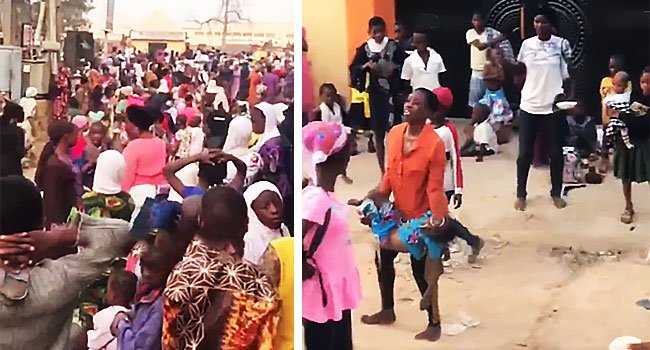35 minors have been confirmed dead in a stampede at a funfair held at Islamic High School, Orita Bashorun, Ibadan.
The incident which happened on Wednesday during a carnival has generated serious panic and opened fresh issues.
The Oyo State Police Command has announced that seven suspects have been arrested for their roles in the disaster.
The Command’s spokesman, Adewale Osifeso, said ex-queen of the Ooni of Ife, Naomi Silekunola; the Principal of Islamic High School, Ibadan, Fasasi Abdulahi; and six others were in police custody.
According to the statement, ex-queen was named as the main sponsor of the event.
“The Oyo State Police Command wishes to inform the good people of the State that (8) Persons have since been arrested for their various involvements,” Osifeso said.
“These persons include the main event sponsor, Prophetess Naomi Silekunola ’f’ age 31yrs, Fasasi Abdulahi, ’m’ age 56yrs (School Principal Islamic High School, Ibadan), Genesis Christopher, ’m’ age 24yrs, Tanimowo Moruf,’m’ age 52yrs, Anisolaja Olabode, ‘m’ age 42yrs, Idowu Ibrahim, ‘m’ age 35yrs and Abiola Oluwatimilehin, ’m’ age 25yrs.”
The Command’s spokesman also said that six persons are injured and receiving treatment in a medical facility.
“So far (35) Thirty-Five Minors have been documented Dead while (6) Six others are critically injured and on various Medical Interventions,” he added.
Osifeso said the case has since been transferred to the Homicide Section of the State Criminal Investigation Department, Iyaganku with the Deputy Commissioner of Police in charge leading the investigations.
He called on residents not to panic “as they would witness high level patrols and visible Police presence to prevent hoodlums from taking advantage of the unfortunate situation.”
The Oyo State Governor, Seyi Makinde, has vowed to investigate the circumstances surrounding the tragedy, assuring that the state government would arrest those responsible for the incident.
The governor commiserated with parents whose children died in the stampede, as he joined several concerned Nigerians to condemn the funfair. (With Agency Report)



